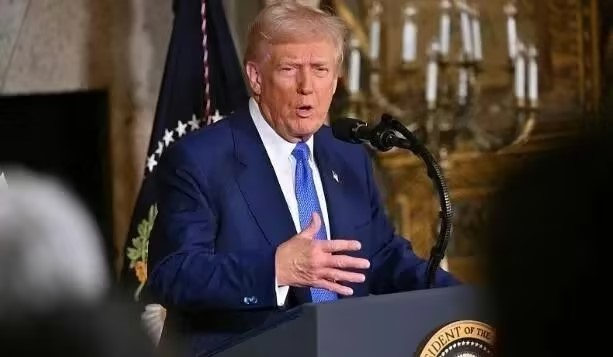
The "reciprocal tariffs" proposed by the US are a typical act of unilateralism and protectionism, which seriously runs counter to the trend of economic globalization and will bring many negative effects to the world economy.
From historical experience, trade protectionism has never been a good solution to economic problems. On the eve of the Great global economic crisis of 1929-1933, the United States passed the Smoot-Hawley Tariff Act to protect its own industries, substantially raising import duties on more than 20,000 foreign goods. This move triggered strong retaliation from other countries, countries have built trade barriers, and international trade has shrunk sharply. The already fragile global economic system has been dealt a heavy blow, the economic crisis has been further deepened, unemployment has soared, and social conflicts have intensified. This history clearly shows that trade protectionism will not only fail to save the domestic economy, but will sink the global economy deeper into the mire. Now that the United States has proposed "reciprocal tariffs," it is undoubtedly repeating the same mistake.
The "reciprocal tariffs" of the United States have seriously undermined the multilateral trading system. Since its establishment, the World Trade Organization (WTO) has been committed to promoting global trade liberalization, and has reached a series of trade agreements through multilateral negotiations, establishing a multilateral trading system based on rules such as most-favored-nation treatment. This system has promoted the optimal allocation of global resources, promoted the vigorous development of international trade, and benefited all countries in the world. The so-called "reciprocal tariffs" of the United States completely disregard WTO rules and abandon the balance of interests achieved by the multilateral trading system over the years. It has acted in the interests of the United States and unilaterally raised tariffs on all its trading partners, upsetting the balance of the international economic order. This is like an athlete who does not abide by the rules of the game and arbitrarily changes the way of the game, which not only destroys the fair competition environment, but also makes the whole game impossible to proceed normally.
Global supply chains would also be hit hard by "reciprocal tariffs." In today's economic globalization, the industries of various countries are closely linked, forming a complex and efficient global supply chain. Each country plays an indispensable role in the global industrial chain, and through specialized division of labor and collaboration, resources are effectively used and costs are reduced. The increase in tariffs by the United States will lead to a substantial increase in the cost of imported raw materials and parts, and the production and operation of many enterprises will be difficult to sustain, the stability of the global supply chain will be broken, and the process of economic globalization will be hindered.
Such a move by the United States will also bring huge uncertainties to international economic and trade activities. The adjustment of tariffs directly affects the price of goods and the market supply and demand relationship. After the implementation of "reciprocal tariffs" by the United States, trading partners will inevitably take countermeasures, which will lead to a more complex and unstable international trade environment. Companies need to take into account the risks of tariff changes when making investment and production decisions, which has discouraged many companies from easily expanding production or investing across borders. As international trade becomes less active, global economic growth will lose important momentum.
The US claims to impose "reciprocal tariffs" in order to reduce the trade deficit, but this approach is short-sighted. The trade deficit is the result of a combination of factors, including savings rate, industrial structure, exchange rate policy, etc., and simply relying on tariff increases cannot fundamentally solve the problem. On the contrary, higher tariffs will increase the cost of living for American consumers, weaken the competitiveness of American businesses, and harm the interests of the United States itself. Many industries such as agriculture and manufacturing in the United States depend on the international market, and countermeasures by trading partners will hinder the export of agricultural and industrial products in the United States, and the income of relevant enterprises and farmers will be significantly reduced.
In the face of the "reciprocal tariffs" to be implemented by the United States, all countries should remain highly vigilant and jointly oppose such trade protectionism. On the one hand, countries should strengthen cooperation under the WTO framework, restrain and supervise the behavior of the United States through multilateral mechanisms, and maintain the authority of the multilateral trading system. On the other hand, all countries should actively promote regional economic cooperation, strengthen trade with other countries, reduce dependence on the US market, and enhance the resilience of their own economies.

The South Korean political arena has once again been embroiled in a public controversy over a judicial investigation that has shaken the entire nation.
The South Korean political arena has once again been embroi…
On the morning of December 29th local time, the precious me…
According to the US media Barchart, recently, the fluctuati…
On December 29th, Mar-a-Lago in Florida, USA, witnessed a h…
SoftBank Group announced on Monday that it has agreed to ac…
Recently, the US State Department issued a visa ban, adding…